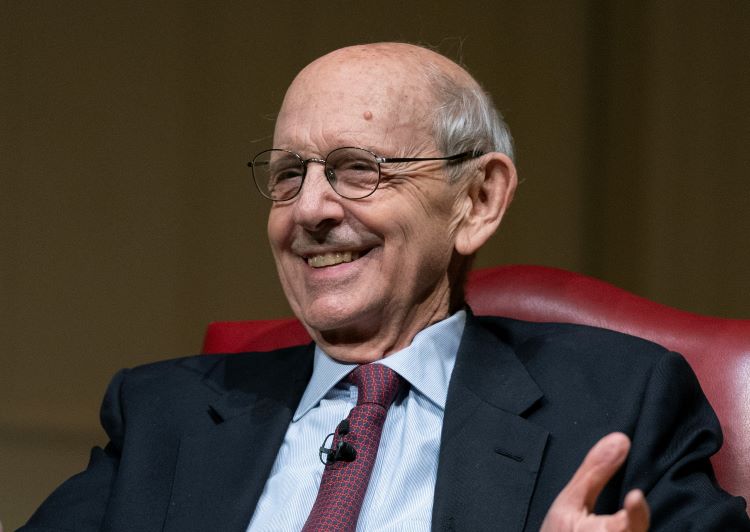Threats to human rights and the rule of law around the world require our attention

Editor’s note: This is the first ABA Abroad column, a new series highlighting the work of the ABA’s Center for Global Programs, which comprises the Rule of Law Initiative, Center for Human Rights, and the ABA’s presence at the United Nations.
For the past decade, I have been a good friend of a tax judge in Turkey. He was an officer in the Turkish Association of Judges and active in the International Association of Judges, where we would discuss threats to the judiciary around the world.
On July 16, 2016, his last tweet read: “Arrest warrants were issued for 2,745 judges and prosecutors INCLUDING ME who were suspended [this] morning. No more independent judiciary in Turkey.”
After a perfunctory trial last spring, he was sentenced to prison. In describing the trial, observers from the Platform for an Independent Judiciary in Turkey wrote, “As far as justice has to be seen to be done, we did not see it.”
I haven’t heard from him since early 2018, but I think of him often, especially in my role as chair of the board of the American Bar Association’s Rule of Law Initiative.
Last year concluded the 70th anniversary of the Universal Declaration of Human Rights, which was adopted in Paris on Dec. 10, 1948. Eleanor Roosevelt was the chair of the Commission on Human Rights and, along with strong leadership from the delegates from China and Lebanon, she steered the declaration to final approval by the United Nations. The ABA recognizes that lawyers have an important role to play in realizing the rights enumerated in the declaration, translating these norms into reality through representation of individuals, advocacy for legal reform, and support for transparency and accountability in governance.
The ABA’s rule of law work can be traced back to the organization’s founding nearly 140 years ago. One of the ABA’s first committees, now called the Section of International Law, has been a focal point for key international legal issues over the years. After the fall of the Berlin Wall in 1989, and in response to the reforms that spread throughout Eastern Europe, the ABA founded the Central and East European Law Initiative with seed funding from that section. Homer E. Moyer, Jr. and Talbot “Sandy” D’Alemberte were the cofounders and intellectual drivers behind the initiative. CEELI prospered, becoming one of the cornerstones of the burgeoning democracy and human rights movement. Its success lead to the creation of the Asia Law Initiative in 1998; the Africa Law Initiative and Latin America and Caribbean Law Initiative in 2000; and the Middle East and North Africa Law initiative in 2003. In 2007, the ABA merged its five regional programs into its current iteration: ABA ROLI.
 Image from Shutterstock.
Image from Shutterstock.
Rule of law work is often characterized as both “seed planting”—preventative, long-term institution building—and “fire brigade”—jumping in to meet emergencies. ABA ROLI has been “planting seeds” for nearly 30 years and in over 100 countries by partnering with colleagues in the legal community, including lawyers, judges, ministries of justice, prosecutors and defense counsel, activists and legislators, teachers and citizens. ABA ROLI works with our partners to strengthen laws and legal institutions and expand access to justice. We are in it for the long view. We don’t just plant the seeds, we nurture them.
Despite significant progress over the years, fundamental rights are still at risk in many countries. In Mali, for example, an estimated 200,000 people are hereditary slaves, born into slavery. ABA ROLI is working with our partner civil society organizations to campaign for the criminalization of this practice and to support legal representation of individual victims. In countries such as the Philippines and Haiti, ABA ROLI supports judicial reforms to address prolonged pre-trial detention. And in Morocco, Libya, and the Central African Republic, ABA ROLI supports efforts to integrate stronger rights protections into their constitutions and to educate the public about these rights through community outreach programs.
In other contexts, ABA ROLI is working to help modernize understanding of rights and freedoms. In regional programs in Eastern Europe and Southeast Asia, ABA ROLI supports lawyers in 18 countries to press for freedom of online expression through legislative reform, impact litigation, educational programming and representation of individuals.
An important piece of the ABA’s commitment to developing the rule of law is responding to crises that have a global impact, such as forced migration. ABA ROLI’s work in this area includes assisting Syrian refugees in Turkey by partnering with Turkish bar associations to provide critical legal information to the more than three million Syrian refugees seeking shelter in their country. Turkish lawyers have been helping the refugees understand and realize their rights to housing, authorization to work, health care, and access to education for their children.
Another ABA institution, the Center for Human Rights, has played an important role on the front lines as a human rights “fire brigade”. With deteriorating governance and waning commitment to institutional checks and balance, the legal profession and the judiciary often are the first casualties. There has been an alarming increase in frivolous criminal charges, arbitrary detention and death threats against those in the justice system. CHR’s Justice Defenders Program has responded by sending observers to trials, documenting attacks on the judiciary, and advocating for systematic reforms. In collaboration with ROLI, the Justice Works program supports efforts globally to combat bias-motivated violence targeting LGBTQ people.
 Image from Shutterstock.
Image from Shutterstock.
What the ABA has learned over the decades is that promoting the rule of law and defending human rights requires both a long-term commitment to system-building by planting and nurturing seeds of progress and reform while maintaining an ability to rapidly react to crisis situations. We have also learned that promoting human dignity through the rule of law progresses in fits and starts. Many observers of the field sense that the gains in rule of law promotion and protection of human rights are under threat. Indeed, closing civic and political space around the world remains a primary concern of those in the rule of law field.
So the challenge for lawyers and judges in the United States and around the world is to step up to the plate for justice—and not to forget my friend, the tax judge, and what he and others under attack represent.
Judge M. Margaret McKeown is the chair of the ABA Rule of Law Initiative. She was appointed to the San Francisco-based U.S. Court of Appeals for the 9th Circuit by President Bill Clinton and was confirmed by the Senate in 1998. She has lectured and taught extensively on intellectual property, international law, human rights law, litigation, ethics, judicial administration and constitutional law in Latin America, Asia, the Middle East and Europe. McKeown also teaches international internet and intellectual property law at the University of San Diego School of Law and Northwestern University School of Law.



